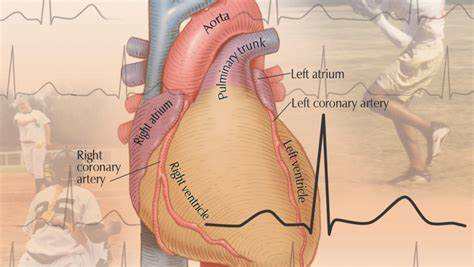Wellbutrin, a commonly prescribed medication for depression and smoking cessation, has been a subject of interest for its potential side effects, including the risk of atrial fibrillation (AFib). Atrial fibrillation is a type of irregular heartbeat that can lead to serious health issues such as stroke and heart failure. This article explores the relationship between Wellbutrin and atrial fibrillation, examining clinical evidence, mechanisms of action, and patient experiences.
What Is Wellbutrin?
Wellbutrin, known generically as bupropion, is an atypical antidepressant and smoking cessation aid. It primarily functions by inhibiting the reuptake of norepinephrine and dopamine, two neurotransmitters involved in mood regulation and addiction pathways. Unlike many other antidepressants, Wellbutrin does not significantly affect serotonin levels, which can lead to a different side effect profile.
SEE ALSO: Can A Fall Cause Atrial Fibrillation (Afib)?
Common Uses
Depression: Wellbutrin is often prescribed for major depressive disorder (MDD), particularly for patients who do not respond well to selective serotonin reuptake inhibitors (SSRIs) or who experience adverse effects from them.
Smoking Cessation: Under the brand name Zyban, bupropion is used to help people quit smoking by reducing cravings and withdrawal symptoms.
Seasonal Affective Disorder (SAD): Wellbutrin is also effective in treating SAD, a type of depression that occurs at certain times of the year, usually in the winter.
Side Effects
Common side effects of Wellbutrin include insomnia, dry mouth, headache, nausea, and dizziness. More serious side effects, although less common, can include seizures, high blood pressure, and psychiatric symptoms such as agitation and hallucinations.
What Is Atrial Fibrillation?
Atrial fibrillation is an irregular and often rapid heart rate that can increase the risk of stroke, heart failure, and other heart-related complications. During AFib, the heart’s two upper chambers (the atria) beat chaotically and out of sync with the two lower chambers (the ventricles). This can cause symptoms such as heart palpitations, shortness of breath, and weakness.
Causes and Risk Factors
Age: The risk of AFib increases with age.
Heart Disease: Conditions such as hypertension, heart attack, and valve disease can contribute to AFib.
Other Conditions: Thyroid problems, sleep apnea, and other chronic health conditions are associated with an increased risk.
Lifestyle Factors: Alcohol consumption, obesity, and high stress levels can also contribute to the development of AFib.
Exploring The Link Between Wellbutrin And Atrial Fibrillation
Clinical Evidence
The clinical evidence linking Wellbutrin to atrial fibrillation is not extensive, but there have been case reports and observational studies that suggest a potential association.
Case Reports
Several case reports have documented instances of patients developing AFib shortly after starting Wellbutrin. In these reports, patients typically had no prior history of atrial fibrillation or other significant heart conditions.
Observational Studies
Observational studies have provided mixed results. Some studies suggest a slight increase in the incidence of AFib among Wellbutrin users, while others find no significant association. For example, a retrospective cohort study published in a cardiology journal found that while there was an increased incidence of arrhythmias in Wellbutrin users, the overall risk of AFib was not significantly higher compared to the general population.
Mechanisms of Action
To understand how Wellbutrin might cause atrial fibrillation, it’s important to explore its pharmacological effects on the heart.
Sympathomimetic Effects
Wellbutrin’s inhibition of norepinephrine reuptake can lead to increased sympathetic nervous system activity. Elevated levels of norepinephrine can increase heart rate and the contractility of heart muscles, potentially triggering arrhythmias in susceptible individuals.
Proarrhythmic Potential
While Wellbutrin is not traditionally classified as a proarrhythmic drug, its effects on heart rate and blood pressure could contribute to arrhythmias. Some research suggests that bupropion might have a direct impact on cardiac ion channels, which could predispose patients to irregular heartbeats.
Patient Experiences
Patient reports and anecdotal evidence also provide insight into the potential link between Wellbutrin and AFib. Online forums and patient review sites contain accounts of individuals experiencing heart palpitations and irregular heartbeats after starting Wellbutrin. While these reports are subjective and not scientifically rigorous, they highlight a need for further investigation.
Clinical Guidelines And Recommendations
Given the potential for Wellbutrin to cause atrial fibrillation, it is important for healthcare providers to consider this risk when prescribing the medication, especially for patients with preexisting heart conditions or other risk factors for AFib.
Monitoring And Assessment
Baseline Evaluation: Prior to starting Wellbutrin, a thorough medical history and baseline evaluation should be conducted to assess the patient’s cardiovascular risk.
Regular Monitoring: Patients on Wellbutrin should be regularly monitored for signs of arrhythmias, especially in the initial weeks of treatment.
Patient Education: Educating patients about the symptoms of atrial fibrillation and advising them to report any irregular heartbeats or palpitations promptly is crucial.
Alternative Treatments
For patients at high risk of atrial fibrillation or those who develop symptoms, alternative treatments for depression and smoking cessation should be considered. Other antidepressants with a lower risk of affecting heart rhythm, such as SSRIs, may be more appropriate.
Conclusion
While the evidence linking Wellbutrin to atrial fibrillation is not conclusive, there are enough case reports and observational data to warrant caution. Healthcare providers should carefully assess the risks and benefits when prescribing Wellbutrin, particularly for patients with cardiovascular risk factors. Further research is needed to fully understand the relationship between Wellbutrin and atrial fibrillation and to develop clear clinical guidelines for managing this potential risk.
In summary, while Wellbutrin can be an effective treatment for depression and smoking cessation, it is important to be aware of its potential to cause atrial fibrillation and to monitor patients accordingly. By doing so, healthcare providers can ensure that they are providing safe and effective care for their patients.

